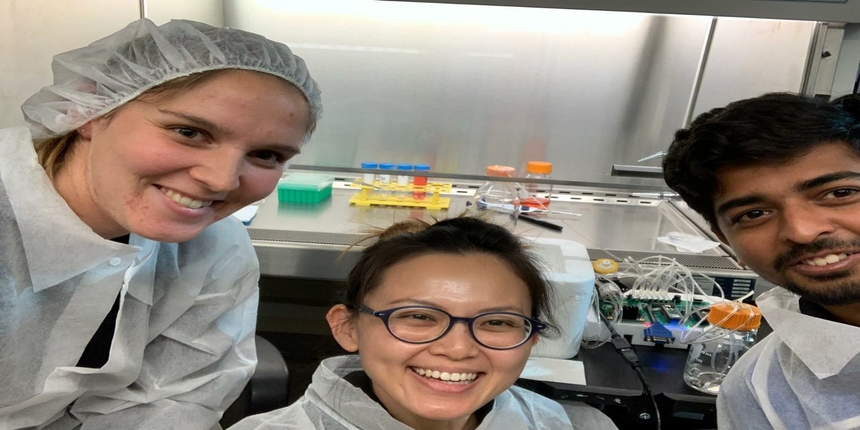IIT Madras, MIT team develops brain tissue in 3D-printed bioreactor
Team Careers360 | May 17, 2021 | 02:24 PM IST | 2 mins read
IIT Madras, MIT-developed technology can help with the development of drugs and therapies for cancer, Alzheimer’s, Parkinson’s disease and more.

NEW DELHI: Researchers at Indian Institute of Technology (IIT) Madras together with researchers from Massachusetts Institute of Technology (MIT) have developed human brain tissues called ‘organoids’ on a 3D-printed bioreactor, said a statement from the institute.
This technology will help enhance medical and therapeutic discoveries for diseases such as cancer and neurological disorders like Alzheimer’s and Parkinson’s disease.
IIT Madras, MIT team
The research team comprised Ikram Khan, alumnus, IIT Madras, Anil Prabhakar, professor, and professors from MIT including Chloe Delepine, Hayley Tsang, Vincent Pham, and Mriganka Sur.
”This bioreactor can be completely automated with different protocols, and used for drug discovery, thus drastically reducing labour costs, errors, and time to market”, said Anil Prabhakar, professor, department of electrical engineering, IIT Madras highlighting the unique points of the research.
“Considering the importance of our micro-incubator in the field of healthcare and in the pharmaceutical industry, we are working through ISMO Bio-Photonics to develop a user-friendly minimum viable product, and raising seed grants for its further development. This will enable biologists or laboratory technicians to operate, control and monitor the growth of organoids with a user-friendly system powered by Artificial Intelligence-assisted automated cell culture protocols”, added Ikram Khan, alumnus of IIT Madras.
Khan was a visiting researcher at MIT on an internship between July and September 2019 at the department of brain and cognitive research.
How it works
Cell culture is one of the fundamental steps in validation of the human organ model, whether it is a pre-clinical study for COVID-19, cancer medicine discovery or any other medicine to be used on humans.
The present cell culture protocols involve risks of yielding false results and chances of contamination, explained the IIT Madras statement.
IIT Madras and MIT researchers came up with a novel solution, which let the cells grow uninterruptedly.
In this invention, a 3D printed micro-incubator and imaging chamber was made into a single palm-sized platform, which was successfully demonstrated for long-term human brain cell-culture and real-time imaging.
This technology has been patented in India. The research team is also exploring the feasibility of international collaborations.
Write to us at news@careers360.com.
Follow us for the latest education news on colleges and universities, admission, courses, exams, research, education policies, study abroad and more..
To get in touch, write to us at news@careers360.com.